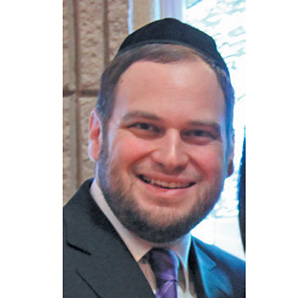
“Abba, we have a big problem!” my son told me anxiously a few weeks back. What now? I thought.
“There is a dead squirrel in the backyard right next to the swing set!” That is a big problem, I thought.
There was no way that I wanted to even see the squirrel, let alone remove it from the backyard. I immediately began to think of who might be willing to take care of it for me. I turned to one of my neighbors, who responded that another neighbor down the block had dealt with these situations before. When I approached that neighbor he responded very graciously, and shortly thereafter came to the house and picked up the squirrel.
The brief crisis sent me back almost two decades to memories of our first few years of married life, when we lived in Washington Heights. Cell phones were just becoming commonplace, and I kept mine on me when I learned with my chavruta each night in the YU beit midrash. If my phone rang during that time, I knew that there could be only one reason why: we had caught another mouse in a trap, and my wife was calling me to deal with it. It wasn’t that these tasks were too menial for me—there was just something I found so abhorrent about the task that my job was to find the right neighbor and friend who would dispose of the mouse for me.
While my example may be a bit extreme, there are certain tasks that we may feel are beneath us. In a relationship where others are counting on us, this attitude may be quite problematic. It is vital for us to be able to pitch in and help others when they need us or when someone is in a pinch.
There is a famous story told about a newly married couple who were in conflict over the husband’s refusal to take out the garbage. He insisted that handling garbage was beneath him. When the rosh yeshiva was called to make peace between husband and wife, he seemed to validate both positions and left the home. The rosh yeshiva unexpectedly returned later that same evening. When the husband asked why the rabbi had come back, the rosh yeshiva responded that he had come to take out the garbage. The lesson was learned.
In Parshat Pinchas, Moshe was deeply disappointed when told that his mission would come to an end without attaining its goal. Hashem informed him that he would die in the desert instead of leading the Jewish people into the Land of Israel as planned. As unfortunate as his situation appeared to be, Moshe beseeched Hashem to appoint a leader to take his place. The midrash points out that Moshe was hoping that his son would assume his leadership role. To his further disappointment, this was denied him as well: Hashem commanded Moshe to appoint Yehoshua as the next leader. We are taught that the reason for Yehoshua’s selection was because of his diligent and consistent hard work in serving Moshe for so many years. Specifically, we are told that Yehoshua would set up the chairs in the place where Moshe taught Torah. There was no limit to the ways in which Yehoshua served and honored Moshe. The Chida, zt”l, comments that a lesson can be learned here regarding the attitude one should have when helping others. If we feel that certain work is beneath us, then we should look at how Yehoshua was rewarded for what many would consider to be menial work.
I think there is another valuable lesson as well: Who a person is isn’t nearly as important as what he does. Moshe’s sons descended from royalty, yet they did not merit to lead the people. Yehoshua was rewarded for his actions rather than the status to which he was born. It is important for us to keep Yehoshua’s behavior in mind when others are in need and come calling for our assistance.
By Rabbi Eliezer Zwickler
Rabbi Eliezer Zwickler is rabbi of Congregation AABJ&D in West Orange, New Jersey, and is a licensed clinical social worker in private practice. Rabbi Zwickler can be reached at [email protected].













